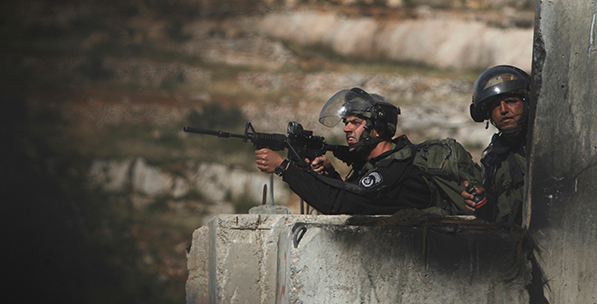Jerusalem is aflame with what the Israeli writer Uri Avnery has called an “intifada of individuals,” as outbreaks of deadly violence have followed what began with Palestinian protests over fears of encroachment by Jewish extremists on the site in the Old City known to Muslims as the Noble Sanctuary. Five Israelis were killed last week in an attack on a synagogue. Palestinian citizens of Israel, meanwhile, are in turmoil over the Nov. 8police shooting in northern Israel of a 22-year-old protester, which was caught on videotape.
Yet the occupied West Bank shows no signs of an uprising, and thePalestinian Authority’s president, Mahmoud Abbas, has declared that there will be no third intifada. Under Mr. Abbas’s increasingly authoritarian rule, this guarantee is based largely on the authority’s close security collaboration with Israel.
The Palestinian security forces were created under the Oslo Accords, ostensibly to support the Palestinian state-building project. Initially, those forces were understood by the population to exist for its defense. During the second intifada in 2002, Palestinian security forces confronted the Israeli Army using their light weapons. Israel responded by largely destroying the Palestinian Authority’s security infrastructure.
Under the 2003 road map, however, the Palestinian Authority agreed to make “visible efforts” to arrest individuals and groups “conducting and planning violent attacks on Israelis anywhere.” Since then, Palestinian Authority security forces have responded to Israeli and international donor demands for what was termed security sector reform, led by Lt. Gen. Keith W. Dayton, who headed the Office of the United States Security Coordinator. This has led the authority’s security forces to act in increasingly repressive ways toward the population at large.
Israel’s military and security apparatus remains the biggest threat to the 4.5 million Palestinians living under Israel’s 47-year occupation in the West Bank, Gaza and East Jerusalem. To take just one measure, a Ramallah-based prisoners’ rights organization estimates that the Israeli authorities have arrested a cumulative total of about 800,000 Palestinians since the 1967 war.
But a growing threat to Palestinians now comes from the Palestinian security forces. Amnesty International, Human Rights Watch and other rights organizations have documented numerous abuses. Palestinian security forces have tortured political prisoners and violently suppressed members not only of Hamas and Islamic Jihad, but also of the dissolved Fatah







